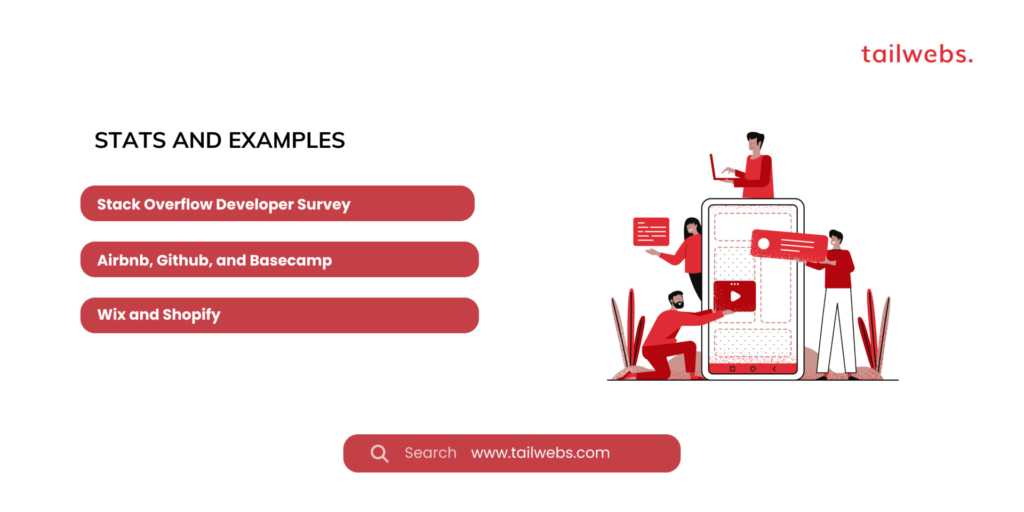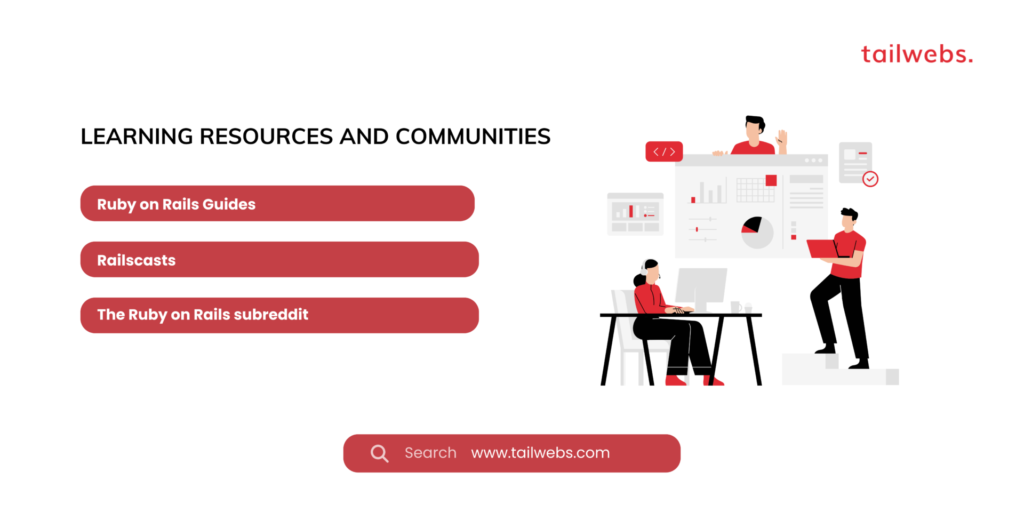5 Questions to Understand Before Writing:
- Ruby on Rails sets itself apart from other frameworks by offering distinct advantages – what makes ROR stand out in comparison?
- Can you provide concrete examples of companies or applications successfully using ROR?
- Are there recent statistics or data points highlighting the current state of ROR adoption?
- What are some popular resources or communities for learning and collaborating in ROR?
- How does ROR’s future outlook compare to other frameworks in the web development space?
Introduction:
In the fast-paced world of web development, trends come and go. Yet, Ruby on Rails (ROR) has defied the odds, remaining a popular choice for developers and businesses for over two decades. While newer frameworks may emerge, ROR continues to stand strong due to its unique set of advantages.
Why Ruby on Rails is Still Relevant:
- Rapid Development:
ROR’s “convention over configuration” approach allows for rapid development cycles, minimizing time to market and reducing costs. This is particularly beneficial for startups and businesses with tight deadlines.
- Extensive Ecosystem:
ROR boasts a vast ecosystem of libraries, gems, and tools, offering pre-built solutions for various functionalities. This reduces development overhead and facilitates code reuse, fostering innovation and collaboration.
- Large and Supportive Community:
The active ROR community provides valuable resources and assistance, making it easier for developers to overcome challenges and find inspiration. This collective knowledge contributes to the framework’s ongoing improvement.
- Scalability:
ROR applications can seamlessly scale to accommodate growing user bases and traffic fluctuations, making it suitable for businesses anticipating significant future growth.

Stats and Examples:
- Stack Overflow Developer Survey:
ROR remains one of the most loved programming languages, consistently ranking high in developer satisfaction surveys.
- Airbnb, Github, and Basecamp:
These iconic platforms are built on Rails, showcasing its ability to handle large-scale applications.
- Wix and Shopify:
Both platforms leverage Rails to empower businesses to create their own online stores and websites.

Learning Resources and Communities:
- Ruby on Rails Guides:
Official documentation for learning ROR basics and best practices.
- Railscasts:
Extensive collection of video tutorials covering various ROR topics.
- The Ruby on Rails subreddit:
Active community forum for discussing ROR news, sharing tips, and asking questions.

Future of Ruby on Rails (ROR):
- Focus on security:
ROR continues to prioritize robust security measures and vulnerability patching to create secure applications.
- Integration with modern technologies:
ROR adapts to incorporate emerging technologies like AI and machine learning, offering innovative solutions.
- Growing community:
The ROR community remains vibrant and welcoming, attracting new developers and fostering continuous growth.

Conclusion:
Despite the emergence of newer frameworks, Ruby on Rails remains a relevant and powerful choice for developers in 2024. Its unique blend of rapid development, extensive ecosystem, supportive community, and scalability makes it a valuable tool for businesses of all sizes. As ROR continues to evolve and adapt to changing trends, it is expected to maintain its dominant position in the web development landscape for years to come.




